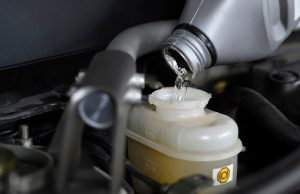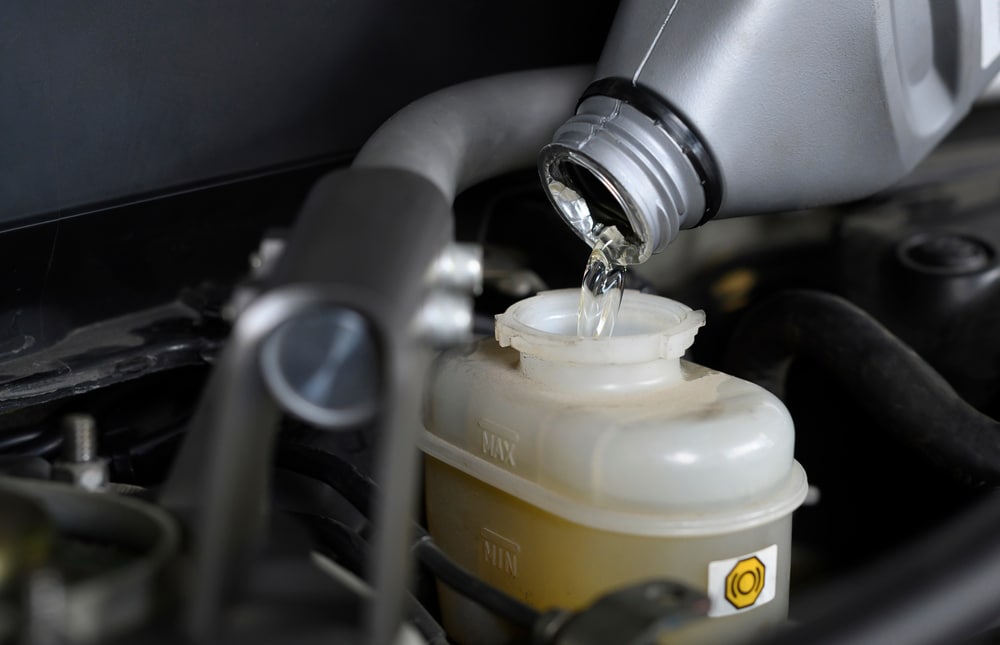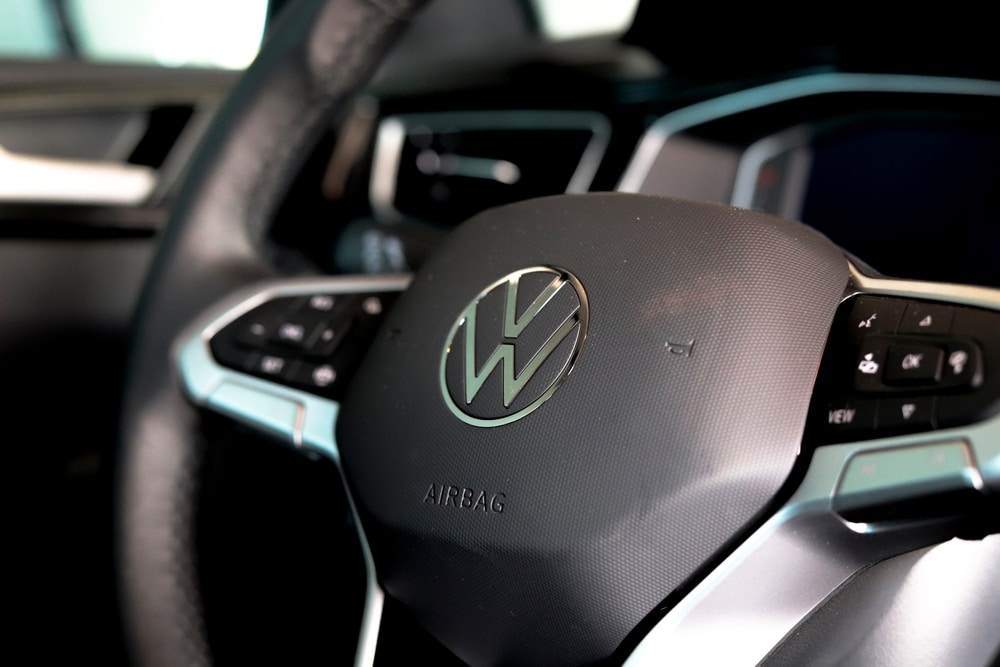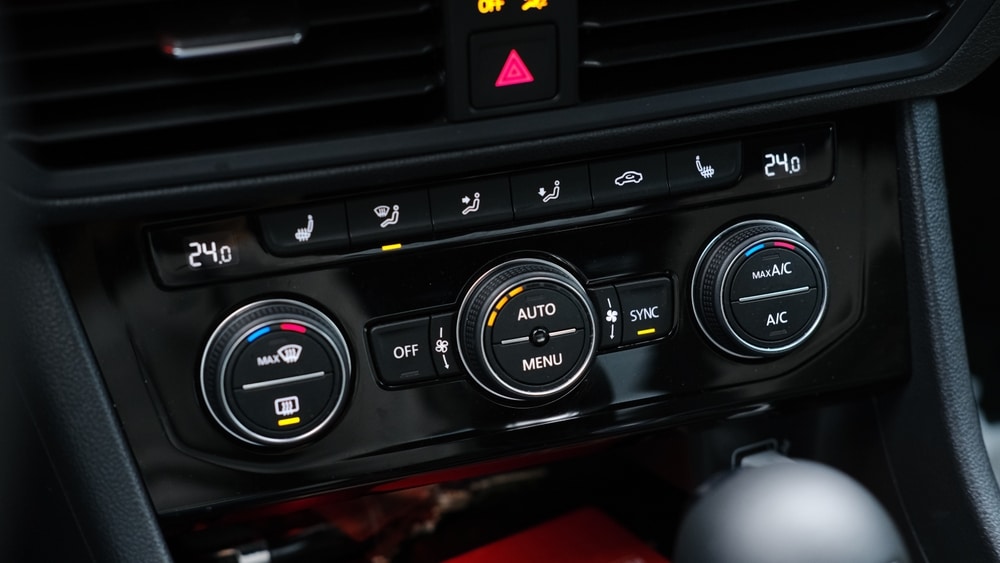Brake Fluid
Brake fluid is a small but vital part of your car’s braking system, ensuring every press of the pedal translates into controlled, reliable stopping power. Over time, however, it absorbs moisture and loses effectiveness, which can lead to longer stopping distances, a spongy pedal, or even brake failure during emergencies.
At CSN Autos, our award-winning team provides expert brake fluid checks and changes to keep your vehicle performing safely. Serving Wymondham, Norwich, and the surrounding areas, we use manufacturer-approved fluid and proven service procedures to maintain the highest standards.
Call 01953 425983 today to book your brake fluid inspection with CSN Autos.

The Importance of Brake Fluid for Safe Stopping
Brake fluid is a vital part of your vehicle’s braking system, ensuring that every press of the pedal is converted into smooth, reliable stopping power. Acting as a hydraulic fluid, it transmits pressure precisely through the system, allowing your car to respond instantly when you need to slow down or stop.
When you apply the brake pedal, the fluid directs pressure to the callipers or wheel cylinders, which then press the brake pads or shoes against the brake disc or drum. This friction is what safely slows the vehicle.
In addition to transferring force, brake fluid helps protect the braking system by preventing corrosion and keeping seals and moving parts lubricated. It is engineered to work under extreme heat and pressure but only performs effectively when it’s in good condition.
Modern safety systems like ABS and electronic stability systems also depend on brake fluid for accurate performance. That’s why regular checks and timely fluid changes are essential for your safety.
How Brake Fluid Creates Consistent Braking
Brake fluid is the hidden force that ensures every press of the brake pedal results in smooth, controlled stopping. When you push the pedal, a master cylinder compresses the brake fluid, generating the hydraulic pressure needed to engage the brakes.
This pressure moves through the brake lines to the callipers or wheel cylinders. These components press the brake pads or shoes firmly against the brake disc or drum, creating the friction that slows or stops your car.
When brake fluid is in good condition, it remains incompressible, meaning the pressure is delivered instantly and evenly across the system. This is what gives you a reliable and consistent braking feel every time.
Brake fluid also powers advanced safety systems like ABS and electronic stability systems, which rely on precise hydraulic control. Without healthy brake fluid, your vehicle’s braking response could be compromised when you need it most.
How to Identify the Brake Fluid Reservoir
To locate your car’s brake fluid reservoir, open the bonnet and look towards the back of the engine bay, typically on the driver’s side. It’s a small, semi-transparent plastic container designed to make checking the fluid level simple and quick.
Inside the reservoir, a rubber diaphragm or cap seal prevents air and moisture from entering. This is essential because brake fluid absorbs moisture over time, lowering its boiling point and reducing its efficiency if not replaced when needed.
While the reservoir’s translucent design allows for a basic level check, evaluating the fluid’s colour and condition should be carried out by a professional.
At CSN Autos, our award-winning team inspects your brake fluid during every service, ensuring your braking system is reliable and safe on the road.
Understanding the Varieties of Brake Fluid
Brake fluid comes in different grades, each designed to meet specific performance needs. Choosing the correct fluid for your vehicle is vital, as using the wrong type can affect braking efficiency or even damage critical components. Here’s an overview of the most common varieties:
- DOT 3 Brake Fluid – A glycol-based fluid with a relatively low boiling point. Often found in older vehicles, DOT 3 absorbs moisture over time, which lowers its performance and means it needs to be replaced regularly.
- DOT 4 Brake Fluid – The most common grade used in modern vehicles. It has a higher boiling point than DOT 3, making it better suited for vehicles with ABS or traction control. Like DOT 3, DOT 4 is hygroscopic and should be changed as part of scheduled maintenance.
- DOT 5 Brake Fluid – A silicone-based fluid that does not absorb water. It is typically used in classic or specialist vehicles but must never be mixed with DOT 3 or DOT 4, as this can cause seal failure or brake issues.
- DOT 5.1 Brake Fluid – Combines the high performance of DOT 5 with a glycol base like DOT 3 and DOT 4, making it compatible with most modern systems.
At CSN Autos, we ensure your vehicle receives the correct brake fluid for maximum safety and performance.
The Factors That Reduce Brake Fluid Quality
Brake fluid works under immense pressure and heat, but over time its quality declines due to a combination of environmental and mechanical factors. If it isn’t replaced when needed, the entire braking system can suffer, leading to reduced performance or even failure.
Moisture Absorption – Brake fluid is hygroscopic, meaning it absorbs moisture from the air, even through microscopic openings in hoses and seals. As water content rises, the boiling point of the fluid drops. This increases the risk of vapour lock — a condition where air bubbles form in the fluid, reducing its ability to transfer pressure during heavy braking.
Heat and Pressure – The high temperatures generated during regular or emergency braking can cause the fluid to break down chemically. Over time, this leaves the fluid less stable and less capable of maintaining performance under stress.
Chemical Additives and Stability – Modern brake fluids include additives to protect against corrosion and seal wear. These additives lose effectiveness over time, leaving key components vulnerable.
Contamination – Rust, rubber debris, or even small traces of the wrong fluid can contaminate the braking system, reducing braking precision and potentially damaging parts.
Old or Incorrect Fluid – Using the wrong grade of brake fluid, or allowing fluid to remain unchanged for too long, can affect ABS, traction control, and brake performance during emergencies.
Brake fluid has a defined lifespan, which is why manufacturers recommend routine changes, even if your brakes “feel fine.” At CSN Autos, we check your brake fluid during every service and advise when a change is needed to keep your vehicle safe.
Key Signs It’s Time for a Brake Fluid Change
Brake fluid plays a vital role in your car’s braking performance, but it naturally degrades over time. Since there’s no dashboard alert for this, recognising the early signs is essential. At CSN Autos, we test your brake fluid during every service to ensure your safety.
Watch out for these signs:
- Spongy or Unresponsive Pedal – If the pedal feels soft or takes more effort to engage, moisture or air may be compromising the fluid’s hydraulic pressure.
- Brake or ABS Warning Lights – Some vehicles show these alerts if fluid levels are low or pressure is uneven.
- Burnt or Harsh Smell – A strong chemical odour when the reservoir cap is removed suggests the fluid has deteriorated.
- Dark or Cloudy Fluid – Fresh brake fluid is pale and clear. A dark or dirty appearance indicates contamination or ageing.
If you notice these warning signs, book a brake fluid check with CSN Autos in Wymondham. Our award-winning team ensures your braking system remains reliable and responsive.
What Happens When Brake Fluid Changes Are Ignored
Brake fluid naturally degrades, even if your car seems to brake normally. Over time, it absorbs moisture and breaks down under heat, reducing its ability to transmit hydraulic pressure effectively. This can lead to a soft pedal feel, longer stopping distances, or even total brake failure during an emergency stop.
What starts as small, barely noticeable signs can worsen over time as brake fluid ages and absorbs moisture, reducing the braking system’s performance without obvious warning.
Neglected brake fluid can also cause internal corrosion in callipers, master cylinders, and brake lines, leading to expensive repairs that could have been prevented.
Manufacturers recommend replacing brake fluid at set intervals, regardless of how the vehicle feels. At CSN Autos, we test your brake fluid during every service and provide expert advice on when a change is due, ensuring your braking system remains safe and reliable.
Keep Your Brakes Safe – Book with CSN Autos
Brake fluid is a small but vital component of your braking system, ensuring every press of the pedal is converted into smooth, reliable stopping power. Over time, however, brake fluid absorbs moisture and loses its ability to perform. This can result in a spongy pedal, reduced braking efficiency, or even brake failure during an emergency stop. Regular brake fluid checks and changes are essential to avoid these risks.
At CSN Autos, our award-winning team provides expert brake fluid inspections and replacements, ensuring your braking system stays in peak condition. We only use manufacturer-approved fluids and follow the recommended procedures for your vehicle.
Why choose CSN Autos?
- Award-winning service (South Norfolk Small Business of the Year 2024).
- We use manufacturer-approved brake fluid and processes.
- Brake fluid checks are included with routine servicing.
- 12-month parts and labour guarantee on all work.
- Courtesy cars available for your convenience.
Your safety matters to us. Call 01953 425983 or book your brake fluid service with CSN Autos in Wymondham today to keep your vehicle performing at its best.



